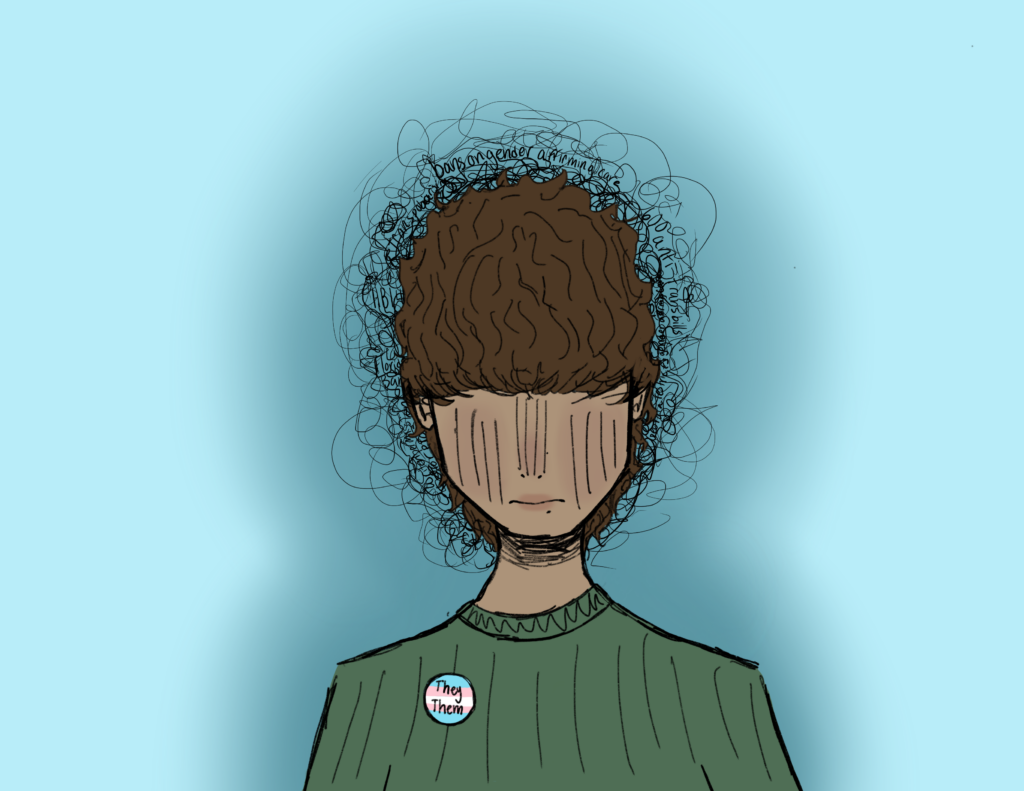Don’t tolerate trans hate
The number of people identifying as transgender ages 13-24 has doubled from 2017-2022. As with any change, there has been resistance. From laws limiting gender affirming care for trans minors to political figures spouting hateful rhetoric, transphobia has been increasingly present as of late. The continued hatred toward the trans community can make trans people feel incredibly alone and scared.
In 2023, a total of 600 anti-trans bills were proposed nationwide; 85 have passed (with one not signed), 185 are still being considered and 323 have failed. There have been over 500 introduced in 2024. The legislation being passed and considered in many states goes beyond restricting gender affirming care, which has been a focus for lawmakers in the past. New legislation addresses the use of students’ pronouns in schools, banning “crossdressing” in public and preventing trans people from using the restroom of their gender identity.
22 states, including Georgia, have banned or restricted gender affirming care for minors, used to reduce gender dysphoria, such as horomones, puberty blockers and surgeries. Some states have gone even further to propose bills that ban care for individuals up to 26 years old. Gender affirming care can be incredibly helpful and even life-saving for some trans individuals.

Gender dysphoria feels different for everyone, but generally it is a state of never being fully comfortable in your own skin. It serves as a constant reminder that you will never be seen as who you truly are. Gender dysphoria is known to lead to self-destructive tendencies such as eating disorders or self-harm. While gender affirming care doesn’t always get rid of gender dysphoria entirely, it can help reduce it significantly.
Another target of recent legislation is banning trans people from using the bathroom aligned with their gender identity. This is a common goal for Trans Exclusionary Radical Feminists (TERFs), whose argument rests on the typically farfetched potential danger of men entering women’s restrooms by pretending to be trans.
The restrictive legislation doesn’t end there. Recently, many laws are addressing the use of pronouns in schools. Arkansas’ HB1468 states that teachers are not to use a student’s preferred name or pronouns without written permission from a guardian. This bill has passed and could be extremely harmful to trans youth; not all children can get their guardian’s permission, and by asking, they risk emotional or physical abuse.
In Missouri, SB868 is still being considered; a bill that, in addition to requiring school staff to not use a student’s preferred name or pronouns without written permission, will require school staff to notify a guardian if the student expresses discomfort with their assigned gender at birth. When laws like this are put into place, it increases the risk of abuse if trans students live with a transphobic guardian.
Efforts to legislate hatred of trans people damages the mental health of the community. A 2023 study by the Williams Institute showed that 81% of trans adults in the U.S. have considered suicide and 42% have attempted it. Beyond suicide, the Williams Institute found 82% of the trans community have received professional counseling. Trans youth have reported even higher numbers, with 56% having attempted suicide and 86% having considered it.
I love being non-binary; I’m not ashamed of it, but sometimes it’s hard because of the negativity trans people face daily. Hearing about transphobic laws, the hate crimes being committed against my community and the transphobic statements made by politicians and other public figures is frankly terrifying. It has made me increasingly worried to come out to people in my life, even those who are openly supportive. Sometimes I feel like the whole world is against me, and the upcoming 2024 election has only amplified my fears.
So what can you do to support trans people you know? Do your best to learn and use preferred names and pronouns. It’s alright to mess up sometimes — just knowing you’re making an effort will mean a lot to the trans people in your life. When meeting new people, try to remember to ask their pronouns and share your own, even if you aren’t trans. This small act can allow people to feel more comfortable around you and lets them know that you will accept them.




